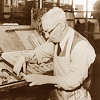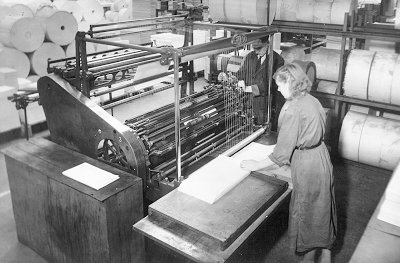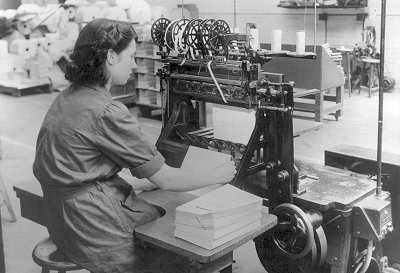|
Right A very important part of Wilkes's business was business
stationery. This often involved producing documents in sets with
carbon paper between each set - so that, for example, a sales assistant
fills in the top white copy and thereby makes carbon copies on pink, blue
and green for different purposes within the company. Here a multiset
machine is set up to produce a six part document (one from each reel) with
five carbons in between. This was in the days before NCR paper. The
foreman making adjustments is Percy Cox. | 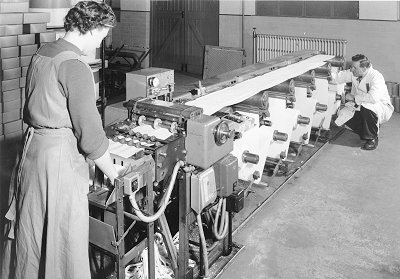 |
Right A guillotine used to trim paper to size and similar
work, either before or after printing. |
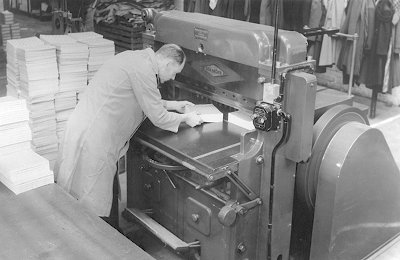 |
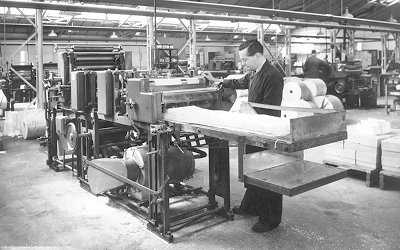 |
Left Printing to produce interfold paper. Continuous interfold enabled documents to be fed continuously into typewriters or other printers. Wilkes were early leaders in this field.
|
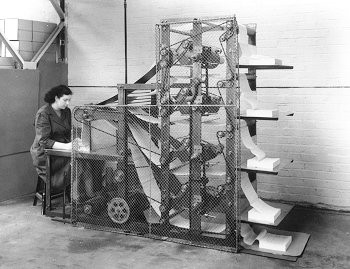 |
Left This is a pack-to-pack collating machine set up for 5
packs (in the trays on the right) and 4 carbons (on the reels in
the centre). When a job needed doing and there was no
machine on the market for doing it, then Wilkes manufactured
their own. This is such a machine, built at
Multimatic
Engineers, a division of James Wilkes. |
| Right Continuous stationery presses. When computers came along they used
this sort of continuous feed paper and Wilkes were among the first to
provide it - and computer stationery of all sorts. James Wilkes provided
sprocket punched continuous stationery to the English Electric Company for
use on its £50,000 "Deuce" computer. The computer was
used by Independent Television for their 1959 General Election coverage. |
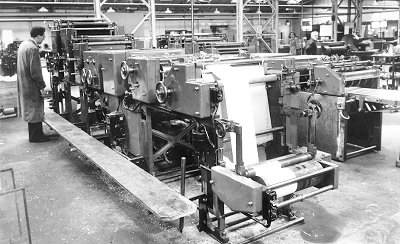 |
Right A reel fed machine. The operator is Les Venvil. | 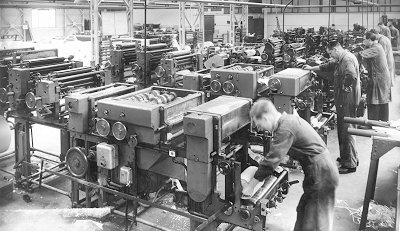 |
| Finishing processes such as manual collating, sewing,
punching and so on. |
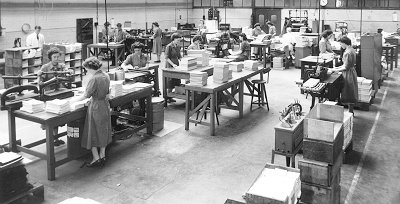 |
And that finishes the trip round the works. | click here to go on with the
history of the company |
